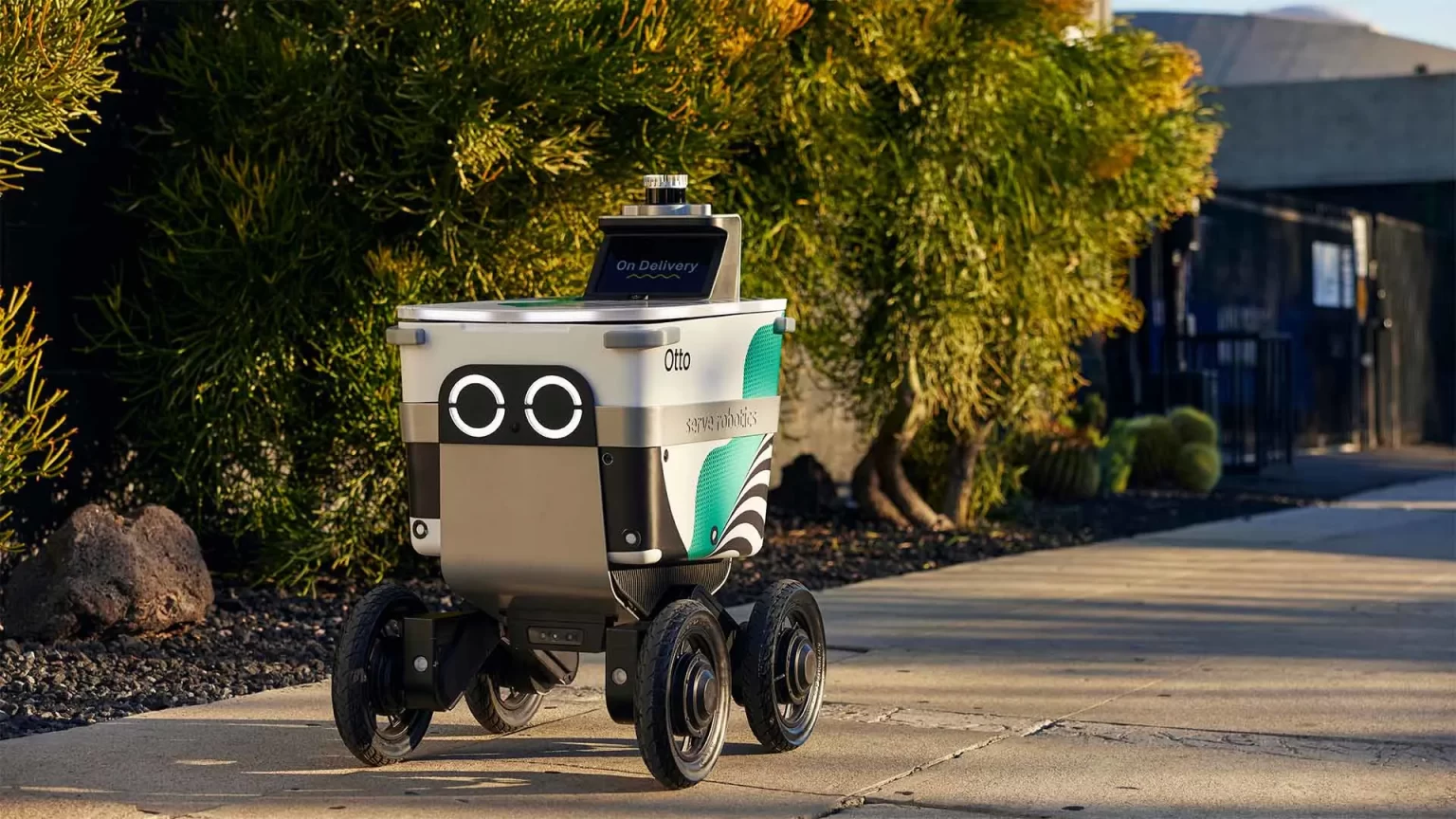In an exciting development for the future of delivery services, Serve Robotics and Wing, a subsidiary of Alphabet, have announced a collaborative pilot program in Dallas that will integrate both sidewalk delivery robots and flying drones. This innovative approach aims to address the challenges of urban logistics by leveraging the unique strengths of each delivery method, ultimately enhancing delivery efficiency and customer satisfaction.
The Concept of Dual Delivery Systems
The joint venture between Serve Robotics and Wing represents a forward-thinking strategy in the realm of last-mile delivery. By combining the capabilities of ground-based robots and aerial drones, the two companies aim to create a seamless delivery network that can reach areas that might be difficult for one system to cover alone.
The partnership is predicated on the idea that flying drones can quickly cover longer distances, while sidewalk robots can navigate local neighborhoods and handle deliveries to doorsteps. This dual approach is designed to enhance delivery speed and reliability, especially in urban environments where traditional delivery services may face challenges due to traffic, road conditions, and the density of buildings.
Addressing Delivery Challenges
One of the significant obstacles in the drone delivery industry is achieving adequate coverage. Flying drones are limited in their operational range, often restricted to a specific radius from their launch point. On the other hand, sidewalk robots can struggle with densely populated areas or tricky terrains, such as uneven sidewalks or steps. The collaboration between Serve Robotics and Wing seeks to overcome these limitations by allowing each delivery method to complement the other.
For instance, when a customer places an order, a Serve Robotics sidewalk robot will first pick up the items from a local restaurant or store. After retrieving the order, the robot will transport it to a designated “AutoLoader,” where a Wing drone will take over. This drone is capable of carrying up to five pounds and can reach speeds of up to 65 mph, enabling it to quickly complete the final leg of the delivery journey. This streamlined process not only reduces delivery times but also enhances the overall customer experience.
Pilot Program Details
The pilot program is set to launch in Dallas in the coming months, although specific details regarding participating restaurants and the precise delivery areas have yet to be disclosed. The initiative will involve a limited number of customer orders, allowing both companies to test their integrated delivery system in a real-world environment.
Serve Robotics is already making strides in the delivery sector, operating sidewalk robots for over 300 restaurants in Los Angeles. This existing infrastructure and experience in urban delivery will provide valuable insights as they expand their operations into Dallas. Wing, known for its successful drone delivery trials, including partnerships with Walmart and pilot programs with DoorDash and Wendy’s in Virginia, brings a wealth of expertise in aerial logistics to the table.
The Future of Drone Delivery
As e-commerce continues to grow and consumer expectations for fast delivery increase, companies are increasingly looking to innovative solutions like drone and robot delivery systems. The collaboration between Serve Robotics and Wing reflects a broader trend in the logistics industry, where technology is being harnessed to create more efficient and adaptable delivery networks.
The pilot program in Dallas could serve as a blueprint for future drone delivery initiatives. By testing the effectiveness of combining sidewalk and aerial deliveries, the companies hope to gather data and insights that can inform broader applications of their technology. Should the pilot prove successful, it may pave the way for expanded operations not only in Dallas but also in other urban centers across the country.
Community Impact and Regulations
While the technology offers numerous advantages, the implementation of drone delivery services will need to navigate various regulatory and community considerations. Local regulations regarding drone flights, sidewalk robot operations, and overall safety will play a crucial role in shaping the success of the pilot program. Engaging with community stakeholders, including residents and local authorities, will be essential to address any concerns and ensure smooth operations.
Furthermore, public acceptance of drone and robot deliveries will be vital for their widespread adoption. As these technologies become more common, fostering positive community relations and demonstrating their benefits will be critical in building trust and encouraging usage.
Conclusion: A New Era of Delivery Solutions
The partnership between Serve Robotics and Wing is an exciting step forward in the evolution of delivery services. By harnessing the capabilities of both sidewalk robots and flying drones, the two companies are well-positioned to redefine last-mile logistics. As they prepare to launch their pilot program in Dallas, the industry will be watching closely to see how this innovative approach performs in real-world conditions.
If successful, this initiative could not only enhance delivery speeds and efficiency but also offer a glimpse into the future of urban logistics. With continued advancements in technology and a growing emphasis on sustainability, the integration of automated delivery systems could significantly transform the way goods are transported and delivered in our increasingly fast-paced world. The collaboration of Serve Robotics and Wing is a testament to the potential of innovative partnerships in tackling complex challenges and improving service delivery in urban environments.

